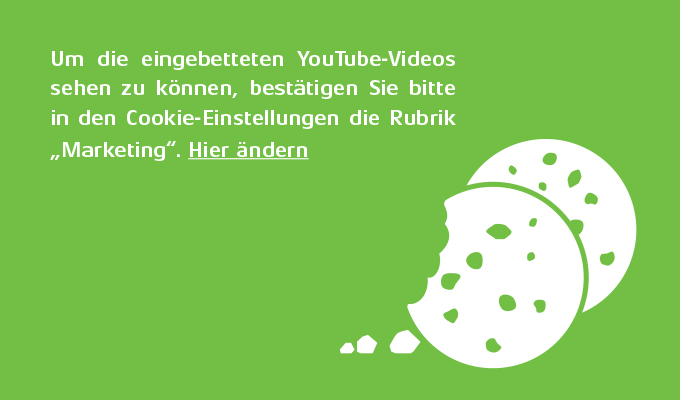Prof. Dr. Thimo Wiewelhove
Thimo Wiewelhove ist Sportwissenschaftler mit Schwerpunkt Trainingswissenschaft, hat an der IST-Hochschule seit November 2020 die Professur für Trainingswissenschaft inne und leitet den Master-Studiengang Trainingswissenschaft und Sporternährung. Von 2012 bis 2020 war er wissenschaftlicher Mitarbeiter am Lehrstuhl für Trainingswissenschaft der Fakultät für Sportwissenschaft der Ruhr-Universität Bochum. Als A-Trainer des Deutschen Tennis Bundes war er dort von 2016 bis 2020 zusätzlich für die Ausbildung im Fachbereich Tennis verantwortlich. Außerdem betreute er von 2011 bis 2020 als sportwissenschaftlicher Leiter am Zentrum für Prävention, Sport und Medizin des Elisabeth-Krankenhauses in Essen zahlreiche Freizeit-, Gesundheits- und Leistungssportler:innen. Thimo Wiewelhove promovierte 2016 zum Thema „Belastungs- und Erholungssteuerung im High-Intensity Ausdauertraining“ und hat sich 2023 für das Fach Trainingswissenschaft habilitiert. Das Thema der hierzu vorgelegten kumulativen Habilitationsschrift lautete „Regenerationsinterventionen und deren Wirksamkeit im Sport“. Neben zahlreichen nationalen und internationalen Publikationen und Kongressbeiträgen ist er unter anderem in der Trainer-Aus- und Fortbildung des Deutschen Tennis Bundes, des Verbands Deutscher Tennislehrer und des Deutschen Schwimm-Verbands tätig. Er ist außerdem Research Fellow des European College of Sport Science sowie Mitglied im Sprecherrat der dvs-Sektion Trainingswissenschaft und im Ausschuss für Sportwissenschaft des Deutschen Tennis Bundes.
Publikationen: https://orcid.org/0000-0003-1020-8780
Ausgewählte Veröffentlichungen:
Wiewelhove, T., Schneider, C., Kellmann, M., Pfeiffer, M., Meyer, T. & Ferrauti, A. (2024). Recovery management in sport: Overview and outcomes of a nine-year multicenter research program. International Journal Of Sports Science & Coaching. https://doi.org/10.1177/17479541241227527
Wiewelhove, T., Conradt, F., Rawlins, S., Deacon, J., Meyer, T., Kellmann, M., Pfeiffer, M., & Ferrauti, A. (2021). Effects of in-play cooling during simulated tennis match play in the heat on performance, physiological and perceptual measures. The Journal of Sports Medicine and Physical Fitness, 61(3). https://doi.org/10.23736/s0022-4707.20.11243-x
Wiewelhove, T., Szwajca, S., Busch, M., Döweling, A., Volk, N. R., Schneider, C., Meyer, T., Kellmann, M., Pfeiffer, M., & Ferrauti, A. (2021). Recovery during and after a simulated multi-day tennis tournament: Combining active recovery, stretching, cold-water immersion, and massage interventions. European Journal of Sport Science, 22(7), 973–984. https://doi.org/10.1080/17461391.2021.1936196
Wiewelhove, T., Thase, C., Glahn, M., Hessel, A., Schneider, C., Hottenrott, L., Meyer, T., Kellmann, M., Pfeiffer, M., & Ferrauti, A. (2021). Repeatability of the Individual Response to the Use of Active Recovery the Day After High-Intensity Interval Training: A Double-Crossover Trial. International Journal of Sports Physiology and Performance, 16(8), 1160–1168. https://doi.org/10.1123/ijspp.2020-0671
Wiewelhove, T., Döweling, A., Schneider, C., Hottenrott, L., Meyer, T., Kellmann, M., Pfeiffer, M., & Ferrauti, A. (2019). A Meta-Analysis of the Effects of Foam Rolling on Performance and Recovery. Frontiers in Physiology, 10. https://doi.org/10.3389/fphys.2019.00376
Wiewelhove, T., Schneider, C., Döweling, A., Hanakam, F., Rasche, C., Meyer, T., Kellmann, M., Pfeiffer, M. & Ferrauti, A. (2018). Effects of different recovery strategies following a half-marathon on fatigue markers in recreational runners. PLOS ONE, 13(11), e0207313. https://doi.org/10.1371/journal.pone.0207313
Wiewelhove, T., Schneider, C., Schmidt, A., Döweling, A., Meyer, T., Kellmann, M., Pfeiffer, M. & Ferrauti, A. (2018). Active recovery after High-Intensity Interval-Training does not attenuate training adaptation. Frontiers in Physiology, 9. https://doi.org/10.3389/fphys.2018.00415
Wiewelhove, T., Raeder, C., De Paula Símola, R. Á., Schneider, C., Döweling, A. & Ferrauti, A. (2017). Tensiomyographic Markers Are Not Sensitive for Monitoring Muscle Fatigue in Elite Youth Athletes: A Pilot Study. Frontiers in Physiology, 8. https://doi.org/10.3389/fphys.2017.00406
Wiewelhove, T., Fernández-Fernández, J., Raeder, C., Kappenstein, J., Meyer, T., Kellmann, M., Pfeiffer, M. & Ferrauti, A. (2016). Acute responses and muscle damage in different high-intensity interval running protocols. PubMed, 56(5), 606–615. https://pubmed.ncbi.nlm.nih.gov/27285349
Wiewelhove, T., Raeder, C., Meyer, T., Kellmann, M., Pfeiffer, M. & Ferrauti, A. (2016). Effect of Repeated Active Recovery During a High-Intensity Interval-Training Shock Microcycle on Markers of Fatigue. International Journal Of Sports Physiology And Performance, 11(8), 1060–1066. https://doi.org/10.1123/ijspp.2015-0494
Wiewelhove, T., Raeder, C., Meyer, T., Kellmann, M., Pfeiffer, M. & Ferrauti, A. (2015). Markers for Routine Assessment of Fatigue and Recovery in Male and Female Team Sport Athletes during High-Intensity Interval Training. PLOS ONE, 10(10), e0139801. https://doi.org/10.1371/journal.pone.0139801
E-Mail: twiewelhove@ist-hochschule.de

